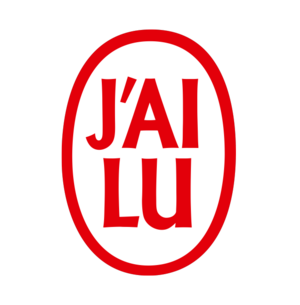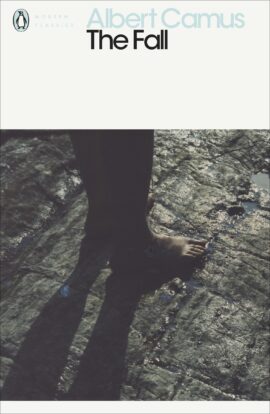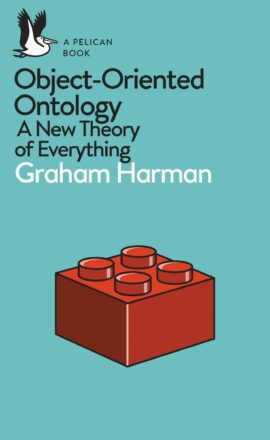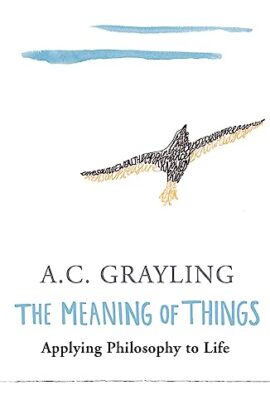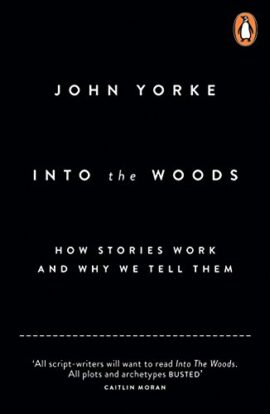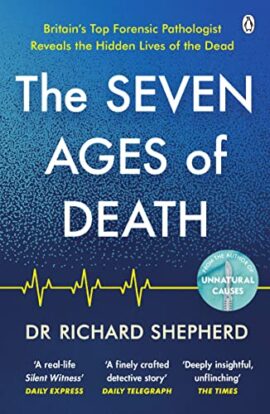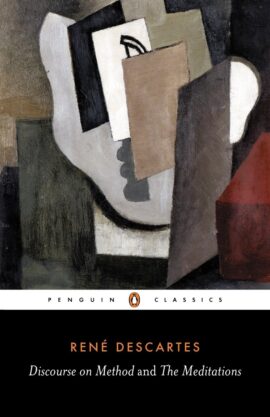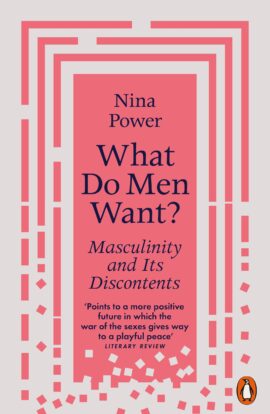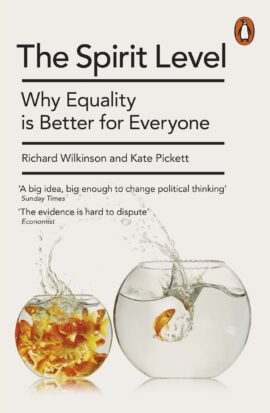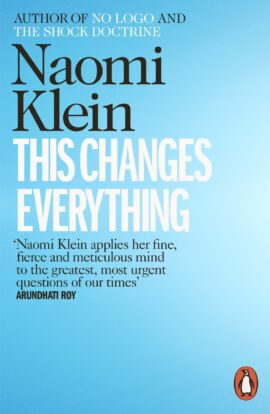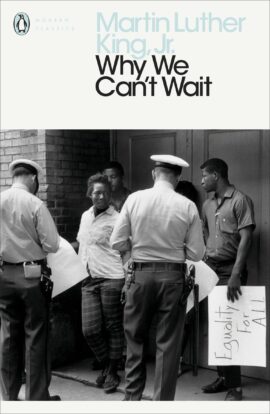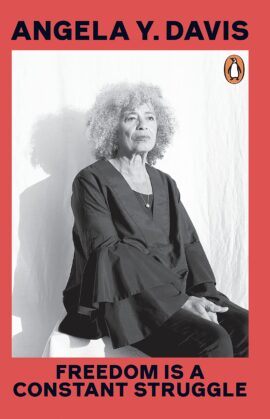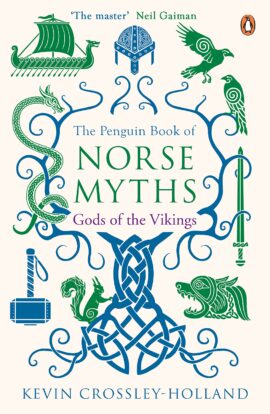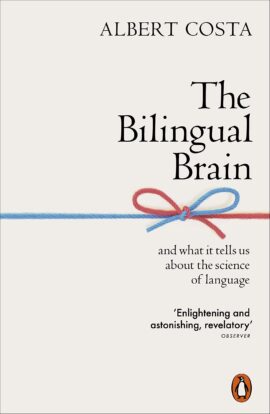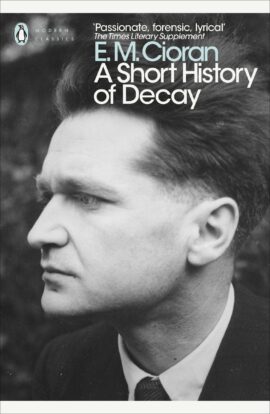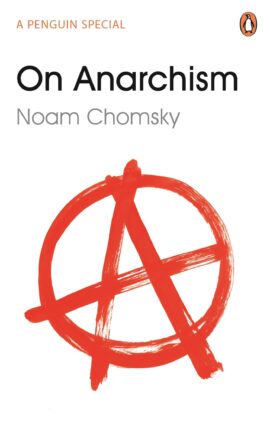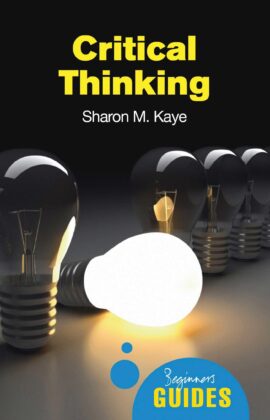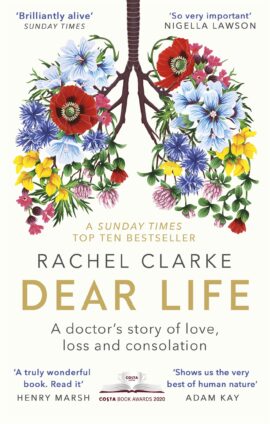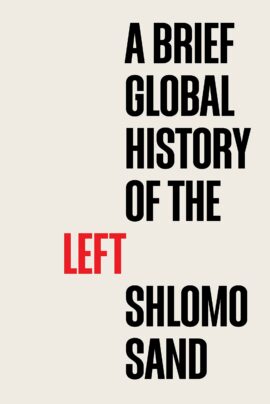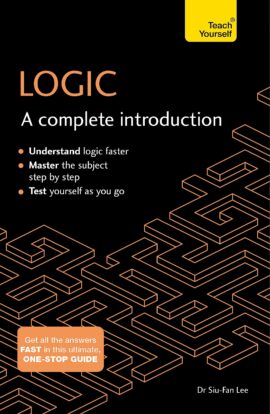Affichage de 51–75 sur 86 résultatsTrié par popularité
The Fall
Jean-Baptiste Clamence is a soul in turmoil. Over several drunken nights he regales a chance acquaintance with his story. From this successful former lawyer and seemingly model citizen a compelling, self-loathing catalogue of guilt, hypocrisy and alienation pours forth. "The Fall" (1956) is a brilliant portrayal of a man who has glimpsed the hollowness of his existence. But beyond depicting one man's disillusionment, Camus's novel exposes the universal human condition and its absurdities - and our innocence that, once lost, can never be recaptured.
Object-Oriented Ontology: A New Theory of Everything (Pelican Books)
We humans tend to believe that things are only real in as much as we perceive them, an idea reinforced by modern philosophy, which privileges us as special, radically different in kind from all other objects. But as Graham Harman, one of the theory's leading exponents, shows, Object-Oriented Ontology (OOO) rejects the idea of human specialness: the world, he states, is clearly not the world as manifest to humans. "To think a reality beyond our thinking is not nonsense, but obligatory." At OOO's heart is the idea that objects—whether real, fictional, natural, artificial, human, or non-human—are mutually autonomous. This core idea has significance for nearly every field of inquiry which is concerned in some way with the systematic interaction of objects, and the degree to which individual objects resist full participation in such systems. In this brilliant new introduction, Graham Harman lays out OOO's history, ideas, and impact, taking in art and literature, politics and natural science along the way. From Sherlock Holmes, unicorns, and videogames to Dadaism, Voltaire, and string theory, this book will change the way you understand everything.
The Meaning of Things
A refreshing distillation of insights into the human condition, by one of the best-known and most popular philosophers in the UK.Thinking about life, what it means and what it holds in store does not have to be a despondent experience, but rather can be enlightening and uplifting. A life truly worth living is one that is informed and considered so a degree of philosophical insight into the inevitabilities of the human condition is inherently important and such an approach will help us to deal with real personal dilemmas.This book is an accessible, lively and thought-provoking series of linked commentaries, based on A. C. Grayling's 'The Last Word' column in the GUARDIAN. Its aim is not to persuade readers to accept one particular philosophical point of view or theory, but to help us consider the wonderful range of insights which can be drawn from an immeasurably rich history of philosophical thought.Concepts covered include courage, love, betrayal, ambition, cruelty, wisdom, passion, beauty and death. This will be a wonderfully stimulating read and act as an invaluable guide as to what is truly important in living life, whether facing success, failure, justice, wrong, love, loss or any of the other profound experience life throws out.
Into The Woods
The best book on the subject I've read. Quite brilliant' Tony Jordan, creator/writer, Life on Mars, HustleWe all love stories. But why do we tell them? And why do all stories function in an eerily similar way? John Yorke, creator of the BBC Writers' Academy, has brought a vast array of drama to British screens. Here he takes us on a journey to the heart of storytelling, revealing that there truly is a unifying shape to narrative forms - one that echoes the fairytale journey into the woods and, like any great art, comes from deep within. From ancient myths to big-budget blockbusters, he gets to the root of the stories that are all around us, every day.'Marvellous' Julian Fellowes'Terrifyingly clever ... Packed with intelligent argument' Evening Standard'The most important book about scriptwriting since William Goldman's Adventures in the Screen Trade' Peter Bowker, writer, Blackpool, Occupation, Eric and Ernie
The Seven Ages of Death
A top forensic pathologist brings unparalleled honesty and insight to a new book about life and deathThrough 24 intriguing, never-before-told cases, Britain's top forensic pathologist Dr. Richard Shepherd takes us on a journey through life in death.From old to young, murder to misadventure, and from illness to accidental death, each body can reveal something: about human development, about mortality, about its owner's life story, and even about Shepherd himself.From the author of Unnatural Causes comes a powerful, moving and above all reassuring book uncovering the secrets of death - how to understand it, postpone it, and, when our time comes (as it must), how to embrace it as the last great adventure.
Discourse on Method and the Meditations
René Descartes was a central figure in the scientific revolution of the seventeenth century. In his Discourse on Method he outlined the contrast between mathematics and experimental sciences, and the extent to which each one can achieve certainty. Drawing on his own work in geometry, optics, astronomy and physiology, Descartes developed the hypothetical method that characterizes modern science, and this soon came to replace the traditional techniques derived from Aristotle. Many of Descartes' most radical ideas - such as the disparity between our perceptions and the realities that cause them - have been highly influential in the development of modern philosophy.
What Do Men Want?: Masculinity and Its Discontents
Something is definitely up with men. From millions online who engage with the manosphere to the #metoo backlash, from Men's Rights activists and incels to spiralling suicide rates, it's easy to see that, while men still rule the world, masculinity is in crisis.How can men and women live together in a world where capitalism and consumerism has replaced the values - family, religion, service and honour - that used to give our lives meaning? Feminism has gone some way towards dismantling the patriarchy, but how can we hold on to the best aspects of our metaphorical Father?With illuminating writing from an original, big-picture perspective, Nina Power unlocks the secrets hidden in our culture to enable men and women to practise playfulness and forgiveness, and reach a true mutual understanding and a lifetime of love.
The Spirit Level New Edition: Why Equality Is Better For Everyone
Richard Wilkinson and Kate Pickett's The Spirit Level: Why Equality is Better for Everyone is the most influential and talked-about book on society in the last decade - now updated with a new chapter on the controversy the book has ignited. Why do we mistrust people more in the UK than in Japan? Why do Americans have higher rates of teenage pregnancy than the French? What makes the Swedish thinner than the Australians? The answer: inequality. This groundbreaking book, based on years of research, provides hard evidence to show: How almost everything - from life expectancy to mental illness, violence to illiteracy - is affected not by how wealthy a society is, but how equal it is That societies with a bigger gap between rich and poor are bad for everyone in them - including the well-off How we can find positive solutions and move towards a happier, fairer future U rgent, provocative and genuinely uplifting, The Spirit Level has been heralded as providing a new way of thinking about ourselves and our communities, and could change the way you see the world. 'A big idea, big enough to change political thinking'Guardian 'A remarkable new book ... the implications are profound'Will Hutton, Observer 'The evidence is hard to dispute'Economist Richard Wilkinson studied economic history at the London School of Economics before training in epidemiology and is Professor Emeritus at the University of Nottingham Medical School and Honorary Professor at University College London. Kate Pickett is a Professor of Epidemiology at the University of York and a National Institute for Health Research Career Scientist. Her work with Richard Wilkinson on The Spirit Level was shortlisted for Research Project of the Year 2009 by the Times Higher Education Supplement, and their book was chosen as one of the Top Ten Books of the Decade by the New Statesman.
Why We Can’t Wait (Penguin Modern Classics)
He changed the course of history' Barack Obama'Lightning makes no sound until it strikes'This is the momentous story of the Civil Rights movement, told by one of its most powerful and eloquent voices. Here Martin Luther King, Jr. recounts the pivotal events in the city of Birmingham, Alabama in 1963 that propelled his non-violent campaign for racial justice from a movement of lunch counter sit-ins and prayer meetings to a phenomenon that 'rocked the richest, most powerful nation to its foundations'.As inspiring and resonant as it was upon publication, Why We Can't Wait is both a unique historical document, and an enduring testament to one man's wise, courageous and endlessly hopeful vision.
Freedom Is A Constant Struggle
In these newly collected essays, interviews, and speeches, world-renowned activist and scholar Angela Y. Davis illuminates the connections between struggles against state violence and oppression throughout history and around the world.Reflecting on the importance of black feminism, intersectionality, and prison abolitionism for today's struggles, Davis discusses the legacies of previous liberation struggles, from the Black Freedom Movement to the South African anti-Apartheid movement. She highlights connections and analyzes today's struggles against state terror, from Ferguson to Palestine.Facing a world of outrageous injustice, Davis challenges us to imagine and build the movement for human liberation. And in doing so, she reminds us that "Freedom is a constant struggle."
The Penguin Book of Norse Myths: Gods of the Vikings
Burning ice, biting flame: that is how life began' The extraordinary Scandinavian myth cycle is one of the most enduring, exciting, dramatic and compelling of the world's great stories. The Penguin Book of the Norse Myths compellingly retells these stories for the modern reader, taking us from the creation of the world through the building of Asgard's Wall to the final end in Ragnarok. You'll discover how Thor got his hammer and how Odin lost his eye, the terrible price of binding the wolf Fenrir and why Loki the trickster can never be trusted. The Norse myths are as thrilling to read as they are of vast cultural and historical importance. In this gripping book Kevin Crossley-Holland brings alive the passion, cruelty and heroism of these unforgettable stories.
The Bilingual Brain: And What It Tells Us about the Science of Language
Over half of the world's population is bilingual and yet few of us understand how this extraordinary, complex ability really works. How do two languages co-exist in the same brain? What are the advantages and challenges of being bilingual? How do we learn - and forget - a language?In the first study of its kind, leading expert Albert Costa shares twenty years of experience to explore the science of language. Looking at studies and examples from Canada to France to South Korea, The Bilingual Brain investigates the significant impact of bilingualism on daily life from infancy to old age. It reveals, among other things, how babies differentiate between two languages just hours after birth, how accent affects the way in which we perceive others and even why bilinguals are better at conflict resolution.Drawing on cutting-edge neuro-linguistic research from his own laboratory in Barcelona as well from centres across the world, and his own bilingual family, Costa offers an absorbing examination of the intricacies and impact of an extraordinary skill. Highly engaging and hugely informative, The Bilingual Brain leaves us all with a sense of wonder at how language works.
Short History Of Decay
A Short History of Decay (1949) is E. M. Cioran's nihilistic and witty collection of aphoristic essays concerning the nature of civilization in mid-twentieth-century Europe. Touching upon Man's need to worship, the feebleness of God, the downfall of the Ancient Greeks and the melancholy baseness of all existence, Cioran's pieces are pessimistic in the extreme, but also display a beautiful certainty that renders them delicate, vivid, and memorable. Illuminating and brutally honest, A Short History of Decay dissects Man's decadence in a remarkable series of moving and beautiful pieces.
The Fall
Jean-Baptiste Clamence is a soul in turmoil. Over several drunken nights he regales a chance acquaintance with his story. From this successful former lawyer and seemingly model citizen a compelling, self-loathing catalogue of guilt, hypocrisy and alienation pours forth. "The Fall" (1956) is a brilliant portrayal of a man who has glimpsed the hollowness of his existence. But beyond depicting one man's disillusionment, Camus's novel exposes the universal human condition and its absurdities - and our innocence that, once lost, can never be recaptured.
Object-Oriented Ontology: A New Theory of Everything (Pelican Books)
We humans tend to believe that things are only real in as much as we perceive them, an idea reinforced by modern philosophy, which privileges us as special, radically different in kind from all other objects. But as Graham Harman, one of the theory's leading exponents, shows, Object-Oriented Ontology (OOO) rejects the idea of human specialness: the world, he states, is clearly not the world as manifest to humans. "To think a reality beyond our thinking is not nonsense, but obligatory." At OOO's heart is the idea that objects—whether real, fictional, natural, artificial, human, or non-human—are mutually autonomous. This core idea has significance for nearly every field of inquiry which is concerned in some way with the systematic interaction of objects, and the degree to which individual objects resist full participation in such systems. In this brilliant new introduction, Graham Harman lays out OOO's history, ideas, and impact, taking in art and literature, politics and natural science along the way. From Sherlock Holmes, unicorns, and videogames to Dadaism, Voltaire, and string theory, this book will change the way you understand everything.
The Meaning of Things
A refreshing distillation of insights into the human condition, by one of the best-known and most popular philosophers in the UK.Thinking about life, what it means and what it holds in store does not have to be a despondent experience, but rather can be enlightening and uplifting. A life truly worth living is one that is informed and considered so a degree of philosophical insight into the inevitabilities of the human condition is inherently important and such an approach will help us to deal with real personal dilemmas.This book is an accessible, lively and thought-provoking series of linked commentaries, based on A. C. Grayling's 'The Last Word' column in the GUARDIAN. Its aim is not to persuade readers to accept one particular philosophical point of view or theory, but to help us consider the wonderful range of insights which can be drawn from an immeasurably rich history of philosophical thought.Concepts covered include courage, love, betrayal, ambition, cruelty, wisdom, passion, beauty and death. This will be a wonderfully stimulating read and act as an invaluable guide as to what is truly important in living life, whether facing success, failure, justice, wrong, love, loss or any of the other profound experience life throws out.
How To Teach Philosophy To Your Dog
Monty was just like any other dog. A scruffy and irascible Maltese terrier, he enjoyed barking at pugs and sniffing at trees. But after yet another dramatic confrontation with the local Rottweiler, Anthony McGowan realises it’s high time he and Monty had a chat about what makes him a good or a bad dog.And they don’t stop at ethics. Taking his cue from Monty’s canine antics, McGowan leads us on an enlightening jaunt through the world of philosophy.Will Kant convince Monty to stop stealing cheesecake? How long will they put up with Socrates poking holes in every argument? Do they have free will to pursue answers to these questions? Join the dutiful duo as they set out to uncover who – if anyone – has the right end of the ethical stick and can tell us how best to live one’s life.But there is also a shadow over their conversations. Monty is not well… And so towards the end the biggest questions raise their heads: is there a God? Does life have a meaning? By the time of their last walk together, Monty – and the reader – will find that they have not just solved a few philosophical puzzles, but absorbed much of the history of Western philosophy.
Critical Thinking: A Beginner’s Guide (Beginner’s Guides)
Discover how to put your point across more effectively!Critical thinking shows people how to analyze arguments, speeches, and newspaper articles to see which faults the authors are making in their reasoning. It looks at the structure of language to demonstrate rules by which you can identify good analytical thinking and helps people to formulate clear defensible arguments themselves. As people are always trying to put a certain point/opinion across in a variety of arenas in our lives, this is a very useful skill. With real life newspaper extracts, a glossary, exercises and answers, and a guide to essay writing, this is an invaluable tool for both students wanting to improve their grades and general readers wanting to boost their brainpower.
Dear Life: A Doctor’s Story of Love, Loss and Consolation
What a remarkable book this is: tender, funny, brave, heartfelt, radiant with love and life. It brought me often to laughter and - several times - to tears. It sings with joy and kindness' Robert MacfarlaneFrom the Sunday Times bestselling author of Your Life in My Hands comes this vibrant, tender and deeply personal memoir that finds light and love in the darkest of places.As a specialist in palliative medicine, Dr Rachel Clarke chooses to inhabit a place many people would find too tragic to contemplate. Every day she tries to bring care and comfort to those reaching the end of their lives and to help make dying more bearable.Rachel's training was put to the test in 2017 when her beloved GP father was diagnosed with terminal cancer. She learned that nothing - even the best palliative care - can sugar-coat the pain of losing someone you love.And yet, she argues, in a hospice there is more of what matters in life - more love, more strength, more kindness, more joy, more tenderness, more grace, more compassion - than you could ever imagine. For if there is a difference between people who know they are dying and the rest of us, it is simply this: that the terminally ill know their time is running out, while we live as though we have all the time in the world.Dear Life is a book about the vital importance of human connection, by the doctor we would all want by our sides at a time of crisis. It is a love letter - to a father, to a profession, to life itself.
A Brief Global History of the Left
What is happening to the Left? It seems to be dying a slow death. While many commentators have predicted its demise, the Left has always defied these bleak prognoses and risen from the ashes in the most unexpected ways. Nevertheless, we are witnessing today a global decline in organized movements on the Left, and while social struggles continue to challenge dominant political regimes, these efforts do not translate into support for traditional left parties or into the creation of dynamic movements on the Left.Bestselling historian Shlomo Sand argues that the global decline of the Left is linked to the waning of the idea of equality that has united citizens in the past and inspired them to engage in collective action. Sand retraces the evolution of this idea in a wide-ranging account that includes the Diggers and Levellers of seventeenth-century England: the French Revolution: the birth of anarchism and Marxism: the decolonial, feminist, and civil rights revolts: and the left-wing populism of our time. In piecing together the thinkers and movements that built the Left over centuries, Sand illuminates the global and transnational dynamics which pushed them forward. He outlines how they shaped the notion of equality, while also analysing how they were confronted by its material reality, and the lessons that they did – or did not – draw from this.This concise and magisterial history of the Left will appeal to anyone interested in the idea of equality and the fate of one of the most important movements that has shaped the modern world.
Logic: A Complete Introduction (Complete Introductions)
Understand Logic is a comprehensive introduction to this fascinating though sometimes challenging subject.As well as looking at logic in theoretical terms the book considers its everyday uses and demonstrates how it has genuine practical applications.It will take you step by step through the most difficult concepts and is packed with exercises to help you consolidate your learning at every stage.Covering everything from syllogistic logic to logical paradoxes and even looking at logic in Alice in Wonderland, this is the only guide you will ever need.

